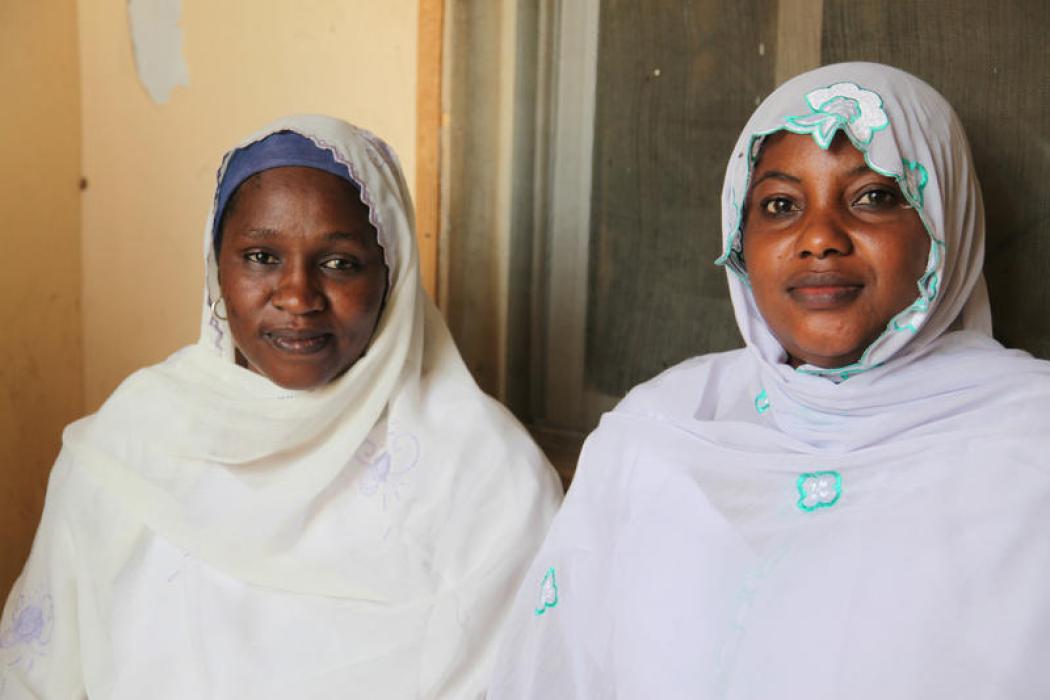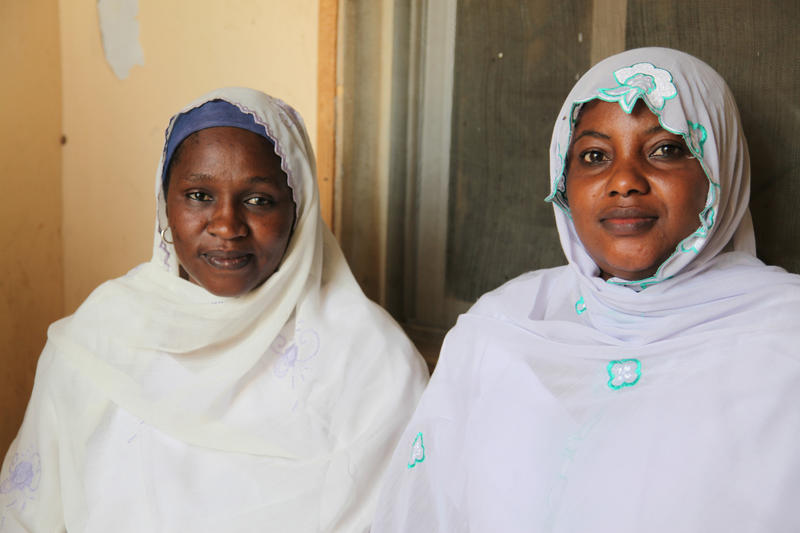Supporting Health Workers to Achieve the SDGs

By Carolyn Moore, mPowering Frontline Health Workers
This World Health Worker Week has shared stories of the inspiring work that health workers are doing in their communities, and examples of why frontline health workers are so critical to achieving the Sustainable Development Goals. We have heard how health workers are improving health and well-being in their communities, often in the face of enormous challenges.

Female health workers at a family planning and maternity clinic in northern Nigeria. (c) 2010 Bonnie Gillespie/CCP, Courtesy of Photoshare
The 17 Sustainable Development Goals cover a range of goals and targets to improve the health, quality of life, and resilience of populations, communities, and the planet. One of the goals (Goal 3) is explicitly health- related, but the impact of health workers goes far beyond morbidity and mortality.
Health workers serve as role models, leaders, and drivers of economic growth in their communities. Their work helps to develop a healthy population that can access education and work opportunities and provides a way to accomplish these ambitious goals. A recent World Health Organization article reminds us of the role that health workers play in creating economic growth, and of the importance of health work on labor markets worldwide.
To help frontline health workers build the skills and access the information they need, mPowering focuses on using mobile technology to improve the scale and quality of training offered to frontline health workers. Frontline health workers in developing countries often work with few resources, little training, and no supervisor nearby. However, the rapid growth of mobile phone access offers a new means of learning to millions of health workers.
mPowering is working with InStrat in Nigeria to help health workers keep their skills fresh. In 18 rural facilities in Ondo State, midwives and other staff are using interactive video content for refresher training on important aspects of maternal and child health. By watching videos like 10 Steps to a Clean Delivery, from Medical Aid Films, and answering questions in OppiaMobile, these health workers are able to assess their own knowledge, access new information, and integrate short study sessions into their work days.
The materials linked above, and more, can be accessed on ORB, mPowering’s open content platform. On ORB, trainers and health workers can find training content to help them learn new skills, refresh their knowledge, or share information with their communities.
This year, mPowering is working with partners to help ORB content reach even more health workers. For example, mPowering is partnering with IntraHealth International to explore ways of integrating ORB training materials into mHero. mHero is a communication system developed by IntraHealth and UNICEF to help Ministries of Health communicate with health workers. mHero was initially developed to support communication in the Ebola response, and is now being scaled to support maternal and child health, nutrition, family planning, mental health, and other services. With mHero, Ministries and health workers can share and collect vital information and Ministries can give health workers support and encouragement – all in real time.
These are just two of the many examples of how technologies can help health workers achieve maximum impact. This World Health Worker Week has been an incredible opportunity to bring our voices together and advocate for more investment and support for health workers. It’s also an important opportunity for organizations to share tools and ideas that enable us to work together for the people we work for – the health workers.
mPowering Frontline Health Workers is a partnership working to accelerate the use of mobile technology to improve the skills and performance of frontline health workers. www.mpoweringhealth.org/blog
